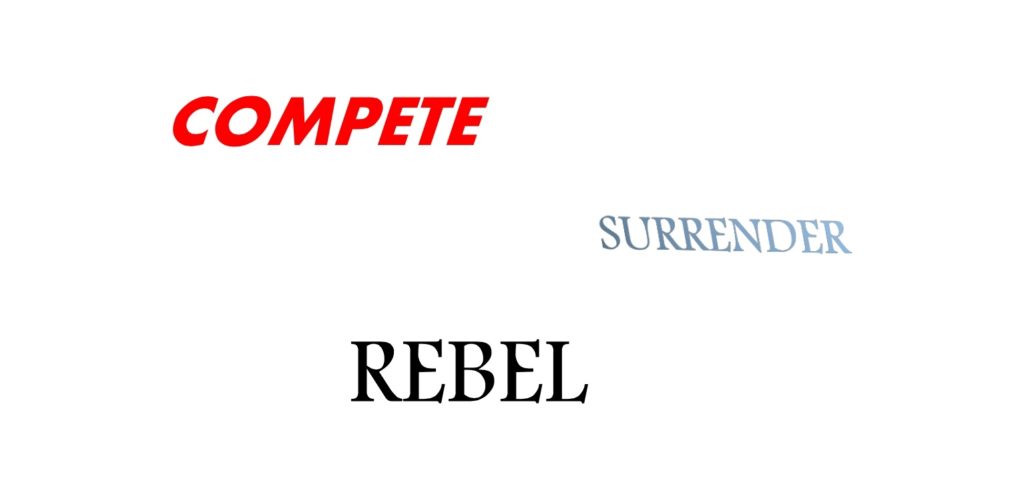Like most people who grew up in the west, I was raised in a very competitive society. Being the best was important and was rewarded. The best students received prizes, the best athletes received medals and trophies and usually, those who excelled were selected for all the revered leadership positions such as valedictorian, prefects, head boys and head girls. And of course, certain privileges were afforded for those in such leadership positions.
That same mindset carried into the social aspects of life, and also defined social circles. As a result, there always seemed to be either a sense of striving or a feeling of inadequacy. You either worked hard to be the best, or you realized that it was unattainable and resigned yourself to being in the lower ranks of society, which means you would give up. If you didn’t want to surrender, you became a “rebel” and defied society’s rules. Giving up and rebellion often made you feel unworthy, yet you knew within your core, even if it was at a subconscious level, that you were worth far more than the attainment of meaningless worldly goals.
I can identify with all three types of behavior or negative belief patterns and some variations in between. I’ve tried to work hard to achieve excellence, which I still believe is a good quality, however, there’s a difference between achieving excellence and striving to be the best.
In a competitive and ambitious environment there are comparisons. In a competitive environment, we’re not trying to be the best that we can be or reach a higher version of ourselves, we’re trying to be better than everyone else.
I can also identify with feeling unworthy and giving up when I’ve realized that the goal is unattainable and the competition too tough. I still believe that there is wisdom in recognizing our limitations, but it should never cause us to feel unworthy, or cause us to give up on the attainment of worthy personal goals.
The challenge again, comes when we draw comparisons between ourselves and others and when we measure our success and worth in comparison to other people’s ability to achieve the goals we’ve set for ourselves. When we do this, there are too many factors outside of our control and we’re not setting ourselves up for success. The risk and possibility of failure is too high.
I can also identify with rebellion. At a subconscious level, I believe our true selves, our core, knows that we have no limitations. As Marianne Williamson said, we know that we are “powerful beyond measure”. When we rebel, it’s usually (and this is of course, a generalization) an attempt to “spread our wings” and resist the labels, rules, and feelings of inadequacy that are being placed on us. When the rules just don’t make any sense and when people are trying to make you feel something about yourself that you know is not true, sometimes it manifests as defiance of rules.
When I began to practice yoga, these were the past experiences and patterns of belief that I thought I had overcome. Yet I soon saw that I had brought them with me, onto my mat. I thought I saw no evidence of negative patterns of belief in my life and through many years of study of theology and personal transformation, I believed I was spiritually and emotionally mature. Yoga has taken me beyond that realization to a place of full and complete wholeness.
Neem Karoli Baba once said, “Often one goes for one thing and finds another.” This is true of my yoga practice. I came to yoga out of curiosity and a need to do more physical exercise, but what I found has filled my heart with gratitude. The deep truths to be found through practicing yoga have brought healing and wholeness both on and off the mat. Moving beyond the three mindsets, I no longer strive to be the best just for the sake of competition. I have no need to be better than everyone else. I am grateful every day to be my best and complete self.
Photo Credits: Carmela Phillips






Your site is amazing. Lots of great info. This article really hit home.